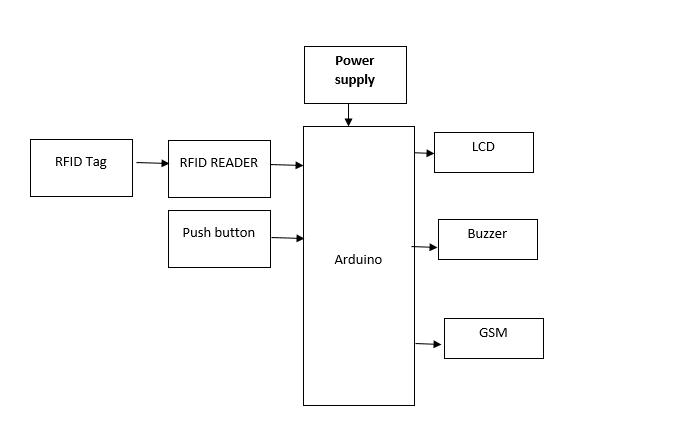Objective
The main objective of this project is to design EVM system using RFID technology for preventing Electoral Frauds
Abstract
The RFID-based Smart EVM System is designed to reduce electoral frauds by utilizing RFID technology to authenticate voters. The system uses RFID tags, where known tags (representing authorized voters) are allowed to cast votes, while unknown tags trigger an alarm and send a message for further investigation. The voting process is carried out through a push-button interface, allowing voters to select their desired parties and confirm their vote. Upon confirmation, the results are displayed on an LCD screen, providing immediate feedback. The entire system is controlled using an Arduino Uno, ensuring ease of implementation and real-time monitoring of the electoral process, thereby enhancing transparency and security in elections.
NOTE: Without the concern of our team, please don't submit to the college. This Abstract varies based on student requirements.
Block Diagram

Specifications
Hardware requirements:
- Arduino
- LCD
- Buzzer
- GSM
- Push button
- RFID Reader
- RFID Tags
- Power supply
Software requirements:
- Arduino IDE
- Embedded C
Learning Outcomes
- Arduino Pin diagram and Architecture
- How to install Arduino IDE Software
- Setting up and Installation procedures for Arduino IDE
- Introduction to Arduino IDE
- Commands in Embedded C
- How to install Libraries?
- Basic coding in Embedded C
- Working of RFID Reader
- Working of Push button
- How to interface RFID Reader with Arduino
- How to interface Buzzer with Arduino?
- Working of LCD
- How to interface LCD with Arduino?
- About Project Development Life Cycle:
- Planning and Requirement Gathering (software’s, Tools, Hardware components, etc.,)
- Schematic preparation
- Code development and debugging
- Hardware development and debugging
- Development of the Project and Output testing
- Practical exposure to:
- Hardware and software tools.
- Solution providing for real time problems.
- Working with team/ individual.
- Work on Creative ideas.
- Project development Skills
- Problem analyzing skills
- Problem solving skills
- Creativity and imaginary skills
- Programming skills
- Deployment
- Testing skills
- Debugging skills
- Project presentation skills
- Thesis writing skills





 Paper Publishing
Paper Publishing
